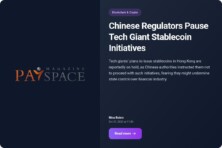In the current quarter, the downturn continues in the space of China’s economic system.

The mentioned state of affairs is a reality that indicates that to improve the situation, Beijing needs to strengthen fiscal incentives. Currently, one of the most sensitive factors affecting China’s economic system is the low level of domestic consumer activity. Against the background of the relevant circumstances, the present state of affairs cannot go beyond the limited capabilities of the upward dynamic. From the perspective of economic growth prospects, this situation means that the appropriate indicator can only increase on a moderate scale.
The low level of consumer activity in China is massively affected by the downturn in the local real estate sector, which has turned out to be longer compared to preliminary expectations and is gradually showing more and more distinct signs of a structural problem, rather than a temporary deterioration of the situation with no critical or significant consequences.
In the first seven months of the current year, the Asian country recorded a slowdown in fixed asset investment to 3.6%. The relevant information was published by the Chinese authorities on Thursday, August 15.
In July, industrial output in the Asian country showed growth of 5.1% year-on-year. The relevant data were published by the National Bureau of Statistics on Thursday. It is worth noting that in June, the mentioned indicator increased by 5.3% year-on-year. Moreover, analysts surveyed by the media predicted that industrial output in China would rise by 5.2% in July.
At the same time, retail sales growth accelerated in the Asian country last month. In July, the corresponding indicator increased by 2.7% compared to the figure for the same period in 2023. In June, retail sales rose by 2% year-on-year. Analysts surveyed by the media predicted that this figure would increase by 2.6% in July. It is worth noting that the dynamic of retail sales is largely due to the seasonality factor. At the same time, this indicator continues to remain below the growth rates that were observed before the coronavirus pandemic.
Currently, Beijing is most likely concerned about financial stability. Officially, the corresponding sentiments of the authorities of the Asian country are not declared and are not stated even in the form of abstract hints. At the same time, there are relatively obvious signs that China’s financial stability as a kind of system is facing various difficulties and challenges of the present historical moment. Beijing is taking action aimed at stopping the rally in the bond market. According to many analysts, the very fact of such actions is evidence of the concern of the Asian country’s authorities about the resilience of financial stability.
Slow economic growth and tight capital controls have concentrated domestic funds in China’s government bond market, which is one of the largest in the world. It is worth noting that in this case, the formulation of slow economic growth is relative in a certain sense. In terms of the corresponding indicator, China is showing results that exceed the global average. In the second quarter of 2024, the Asian country’s economy grew by 4.7%. For example, according to Eurostat, the adjusted seasonal gross domestic product (GDP) of the European Union increased by 0.7% over the analog period. At the same time, the growth of the Chinese economy in the second quarter of 2024 cannot be described as an optimistic indicator. Analysts surveyed by the media predicted that the mentioned figure would increase by 5.1%. Moreover, in this case, it should be mentioned that in the first quarter of 2024, the Chinese economy showed growth of 5.3% year-on-year. The slowdown in the positive dynamic is obvious and indicates problems.
This week, the media, citing insiders, reported that regulators had told commercial banks in Jiangxi Province, located in southeastern China, not to settle their purchases of government bonds.
On Monday, August 12, futures prices for 10-year government bonds of the Asian country fell to the lowest level in nearly a month. Over time, this indicator showed a recovery that was limited. The mentioned prices move inversely with yields.
Alicia Garcia-Herrero, chief economist for Asia-Pacific at Natixis, says that the sovereign bond market is the backbone of the financial sector, and the corresponding axiom is relevant for any region of the world, including China and Europe. According to her, unlike retail investors or asset managers in Europe who are involved in electronic bond trading, banks and insurers tend to hold government bonds, which implies nominal losses if prices fluctuate significantly.
It is worth noting that from the beginning of the current year until August, the yield of 10-year Chinese government bonds was on a downward trajectory. In the early days of the current year, this indicator reached the lowest level in the last 14 years. At the same time, this week the yield of 10-year government bonds of the Asian country turned out to be on an upward trajectory. Whether this dynamic is a temporary improvement without long-term positive consequences or a structural change in the vector of a fundamental nature is still unknown.
Currently, the yield on China’s 10-year government bonds is about 2.2%. At the same time, the corresponding figure for similar United States bonds is almost 4%. This gap is a reflection of the fact that the Federal Reserve is keeping interest rates high, while the People’s Bank of China is lowering borrowing costs amid weak domestic demand.
Alicia Garcia-Herrero says that in the context of the situation in the Asian country’s bond market, the main importance is not how the corresponding state of affairs reflects the economic condition, but what it means from the point of view of financial stability. In this case, she also noted that a correction in sovereign bond yields would have a significant impact on the sovereign balance sheet. Besides, the expert underlined that currently in China there is a potential problem worse than the negative experience of Silicon Valley Bank. The mentioned financial institution collapsed in March last year. This bankruptcy has become one of the largest for the United States banking sector in recent times. Some analysts said that the lender’s collapse was a consequence of changes in capital allocation related to the Fed’s monetary policy, which provides for aggressive interest rate increases.
Pan Gongsheng, governor of the People’s Bank of China, said in June that central banks should learn lessons from what happened to the mentioned US lender. His statement implies that the example of the Silicon Valley Bank should be perceived as a kind of guide for promptly correcting and blocking the accumulation of financial market risks. He also noted the need to pay special attention to the maturity rate mismatch and interest rate risk of some non-bank entities holding a large number of medium and long-term bonds.
Zerlina Zeng, head of Asia credit strategy, at CreditSights, says that China’s financial regulator has stepped up its intervention in the government bond market. The expert notes that the central bank of the Asian country has tightened control over trading in the mentioned market. China’s financial regulator also makes recommendations to state-owned lenders to sell government bonds. According to the expert, the central bank of the Asian country seeks to maintain a steep yield curve and manage risks arising from the concentrated holding of long-end bonds by city and rural commercial banks and non-bank financial institutions.
Zerlina Zeng suggests that the purpose of the intervention of the Asian country’s financial regulator in the bond market was not to engineer higher interest rates. According to the expert, the relevant actions were aimed at guiding banks and non-bank financial institutions to extend credit to the real economy rather than parking funds in bond investments.
For Chinese regulators, stability has long been a kind of guideline. The corresponding goal setting is beyond doubt on the part of financial officials of the Asian country, even against the background of the risk of declining profitability and concerns related to accelerating price growth.
Edmund Goh, head of China fixed income at Abrdn, says stability is especially important for Chinese insurance companies, which have parked much of their assets in the bond market. These firms guaranteed consumers fixed return rates for life insurance and other products.
In July, the Chinese media, which, according to some journalists from other states, are affiliated with the financial regulator of the Asian country, negatively criticized the rapid purchase of government bonds, describing this process as shorting for the economy. Over time, the evaluation of the mentioned actions has been changed. The media described the rapid purchase of government bonds as a disturbance within the framework of the new characteristic.
Charles Chang, managing director at S&P Global Ratings, says that the latest volatility in China’s domestic bond market indicates the need for reforms that will channel market forces to the efficient allocation of credits. Also in this context, the expert noted that measures that increase the diversity and discipline of the market can help to reinforce the periodic actions of the financial regulator of the Asian country. Moreover, Charles Chang said that reforms in the corporate bond market can contribute to Beijing’s striving for more efficient economic growth with less debt in the long term.
The latest snapshot of China’s $17 trillion economy shows a general loss of dynamism and signals signs of a deterioration in the situation. Currently, pessimism is the dominant mood in the business environment of the Asian country. It is worth noting that a similar assessment of the current state of affairs and its most likely prospects is also inherent in consumers.
Likely, the efforts made by the Government of an Asian country to stimulate consumption and investment activity will not have a significant positive result of a large-scale nature. This assumption is because the world’s second-largest economy continues to lean on the manufacturing industry as a source of growth.
Ding Shuang, chief economist for Greater China and North Asia at Standard Chartered Plc., says that the upward dynamic of the Asian country’s economic system is showing a slowdown. According to the expert, in this case, additional difficulties are being formed to achieve growth of about 5% in the current year. Ding Shuang says that policymakers will eventually face the reality of the mentioned fact.
The above-mentioned retail sales growth was positively received by equity traders. The onshore benchmark CSI 300 index increased by 1.2% on Thursday. In this case, the best session in two weeks was recorded. The gauge of Chinese stocks listed in Hong Kong is also currently on an upward trajectory. The corresponding indicator compensated for the early losses.
Analyst Marvin Chen says that the retail sales data were largely in line with expectations. According to the expert, the markets may feel some relief due to the first signs of stabilization of the mentioned sales and home prices, which in recent months have been a negative factor for the Chinese economy.
The government of the President of the People’s Republic of China, Xi Jinping, is currently striving to overcome the economic downturn observed after the coronavirus pandemic, which has become a kind of shock circumstance not only for Beijing but actually for the whole world. Analysts are convinced that achieving the Asian country’s economic growth target of about 5% in 2024 will become a reality if the Chinese authorities increase infrastructure spending and launch other programs to revive demand.
Fiscal support for the world’s second-largest economy has been weak this year. In this case, the result is that Beijing prefers to refrain from large-scale stimulus measures. In the first half of the current year, public expenditures in China decreased. At the same time, the authorities of the Asian country have slowly raised funds for infrastructure projects by selling bonds.
The above-mentioned negative situation in the Chinese housing market does not show any significant changes. At the same time, in this case, a stabilization of the rate of decline was recorded. Housing prices in the Asian country continue to be stable. The number of new home buildings in China decreased by about 20% year-on-year in July.
According to calculations by Goldman Sachs Group Inc., in the Asian country last month, the total volume of investments increased by 1.9% compared with the result for the same period in 2023. It is worth noting that in June the corresponding indicator grew by 3.7%.
There is also a slowdown in infrastructure investment growth in China. The corresponding tendency was recorded in the period from January to July of the current year. Investments by private companies also fell.
Expert David Qu says that investments in infrastructure were one of the main factors in the growth of domestic demand in the Asian country, which lagged behind production this year. According to him, the engine of the Chinese economy, which is related to demand, is slowing down and losing steam.
Recently, concerns about a prolonged decline in confidence and prices have increased. In this case, the reason for concern is that China has reported a decrease in lending to the real sector of the economy. Beijing has made a corresponding decision for the first time in almost two decades.
There has also been an increased debate recently about the likelihood that China will face years of stagnation, similar to the situation in which Japan found itself in the early 1990s. Moreover, there is a risk that a repeat of the balance sheet recession will become an economic reality for Beijing. The probability of the relevant prospect materializing is because, in an Asian country, families and businesses are focused on paying off debts and have stopped spending money on the economy.
Serena Zhou, senior China economist at Mizuho Securities Asia Ltd., says that the Asian country’s economic system is facing a significant threat due to self-fulfilling deflationary expectations. According to the expert, in the context of the current realities, Beijing’s top priority should be to end the downward spiral as soon as possible by introducing more assertive measures.
The People’s Bank of China recognizes the existence of obstacles to the growth of the Asian country’s economic system. In the context of assessing this problem, the financial regulator draws attention to such impact factors as changing external conditions with negative consequences and domestic demand, which continues to be insufficient. The People’s Bank of China also said that the transition from old growth factors to new ones is associated with temporary difficulties.
Currently, as part of the drive to stimulate the economy, Beijing is betting on high-tech manufacturing. Also, the leadership of the Asian country is trying to deflate the bubble in the real estate market, where households keep the bulk of their wealth.
It is widely believed among analysts that Beijing will take all measures necessary to achieve the economic growth target in 2024. At the same time, there is no guarantee that the relevant decisions will have the expected effect.
Ding Shuang says that an obstacle on the way to the mentioned growth is the fact that it is difficult for the authorities of an Asian country to use all the money that was raised through bonds, due to a shortage of qualified construction projects. The expert said that the Chinese government should expand the use of these funds in other directions, such as the equipment modernization program. Ding Shuang says that more flexible use of financial resources raised from bond issuance can help fiscal policy have a greater impact on consumption and investment.
The People’s Bank of China is expected to cut interest rates again this year. At the same time, likely, the relevant actions of the financial regulator of the Asian country will be moderate. If this assumption turns out to be true, another lowering of the cost of borrowing will not be sufficient to improve consumer and investor sentiment. Moreover, the ability of the Asian country’s financial regulator to further ease monetary policy is constrained due to concerns about the dynamic of the yuan. Also, China is currently recording the need to take measures aimed at stopping the rise in bond prices, which could potentially become a shock factor for the world’s second-largest economy if the continuation of the relevant process is disorderly.
Xing Zhaopeng, senior China strategist at Australia & New Zealand Banking Group Ltd., says that current indicators show a weak start to the second half of the current year for the Asian country’s economic system. The expert also drew attention to the continuation of the problem of insufficient demand.









